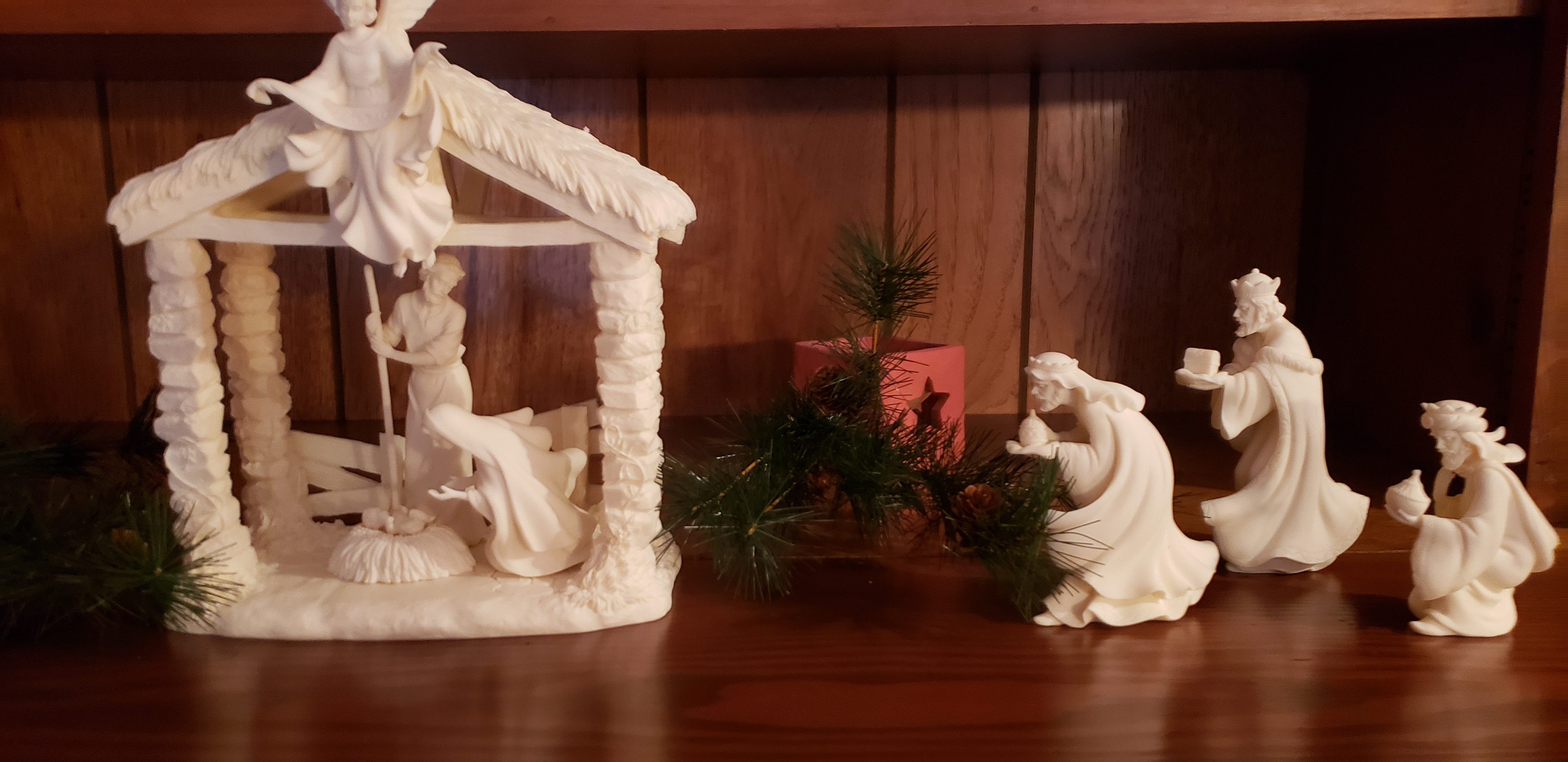Epiphany of the Lord
“We saw his star at its rising and have come to do him homage.” Mt. 2:2 – 13
What a challenging story.
However, we’ve heard it so many times, acted it out in so many plays, and displayed it regularly in so many of our nativity scenes, that we’ve lost any sense of just how very unusual and inspiring it is.
So, let’s look a little closer … especially in these days when so many “Christian” people are demanding that Muslims no longer be allowed in our country, that Latinos should be deported, and that brown-skinned children who were brought to this country by their parents should be caged like animals.
Often the thinking behind these attitudes is that only we Christians are God’s cherished people, especially those of us who are white-skinned and have European backgrounds.
But notice that the main characters in this story, found only in Matthew’s gospel, are not white, not Christian, not European, and not even Jewish. They are pagan foreigners – three people from an Eastern alien land.
In those days, Jewish people considered themselves to be God’s chosen ones. They embraced what they believed to be the one true religion and that all other people were hopelessly lost.
It’s the same conviction many Christian people in the U.S. hold today … we are the only ones that matter, and the only ones God loves. And you may remember that for many years we Catholics in America were not even considered to be Christian. Catholics were “other,” foreign, not to be trusted.
Most of us start out on a similar path.
We begin by believing that we are special; we are chosen; we are unique; we are not like the others. Our school is the best. Our team is the best. Our family is the best. And, therefore, our religion is the best.
And then along comes a gospel reading like todays.
In it, three men claim to have seen a star in the sky – a star so hypnotically captivating that they were compelled to leave their land and follow that star – wherever it would take them.
So here they are: three outsiders, three pagan “new agers,” if you will, who follow a light in the sky at great expense of both time and treasure.
Why would they do this?
Because they were seekers of truth. We call them “wise”. And we call them that because they were willing to give their all to search for truth, to search for life’s ultimate meaning, to search for God.
The star is a symbol of direction and knowledge for the wise men. It is a manifestation (the meaning of the word “epiphany”) of God’s guidance as a light for the way. And the star in the sky is ultimately a sign of hope and vision for all people of all times.
And that hope and vision is this:
That with this child’s birth a new age has dawned, a new possibility is accessible to all people of whatever skin color or ethnicity, gender or religion. God’s lavish, infinite Love reaches to the ends of the earth and beyond.
A priest tells this story:
Many years ago, while giving several retreats in India, he became very sick from some food he had eaten. To help get well, the local folk people put a young Hindu boy in charge of his caretaking.
To quote the priest: “The boy waited on me day and night, making sure that my every need was met. All along, the boy would keep asking me what I needed. As I lay in bed, I began to wonder how a young man could come to such love, deeply caring for someone that he never knew and who was not of his religion. So one morning I asked him, ‘Who is God for you?’ He said very politely, ‘Sir, I believe that whenever one person shows respect for another person, there is God.’”
This is the lesson of Epiphany:
God is shown forth wherever people are searching for love and light and truth.
This is the wisdom of those three foreigners that we call “wise men”: God is present wherever people are treated with charity and mercy.
This is the star in the sky that leads us deeper and deeper within ourselves – beyond our biases, beyond our smallness – and always in search for the truth embodied in a Child lying in a manger:
This is the truth that from the infinite depth of love God became Emmanuel, God with us and for us and within us – a God ever and always calling us to leave our comfort zones and go beyond – way, way beyond.
May this New Year be a time for each of us to follow the star that leads to Bethlehem and, like the three men we now call “wise,” drop to our knees and bring God the gifts of becoming wise men and wise women ourselves – people dedicated to the signs of God’s presence within: truth and compassion.
Ted Wolgamot, Psy.D.
NOTE: Quote for the week from Sr. Rachel:
“Love is the
Epiphany of God in
our poverty.”
—-Thomas Merton

NOTE:
The emphasis on gift giving at Christmas time is often attributed to the story of the Magi and the gifts they bring to the child Jesus. Each gift that is brought is often interpreted as symbols of the Wise Men’s inner dispositions. John Shea tells us that “Gold means they offer their virtues, frankincense shows them to be people of prayer, and myrrh represents their willingness to sacrifice. The outer gifts tell of their inner reality. What is hidden is revealed. Their gifts are perfect because they allow communication between two interiors – the hearts of the Wise Men and the heart of the child. The perfect gift is one that carries one person into another.”
NOTE:
Christmas stories have traditionally emphasized the subtle dynamics of gift-giving. For example, the Little Drummer Boy (a favorite of mine) is poor. He has nothing of value to give to the Christ Child. So he plays his drum, and the “ta, pa, pa, pom” coaxes a smile from the child Jesus. This gift has performed its highest ambition: bringing together two people. In A Charlie Brown Christmas, Charlie goes in search of a magnificent tree for his Christmas party. What he eventually brings home is a broken tree that brings the kids together and opens up for them the spirit of Christmas. And then there’s the beloved O. Henry’s “Gift of the Magi” which ends with the words “Of all who give and receive gifts, such as they are the wisest.”





